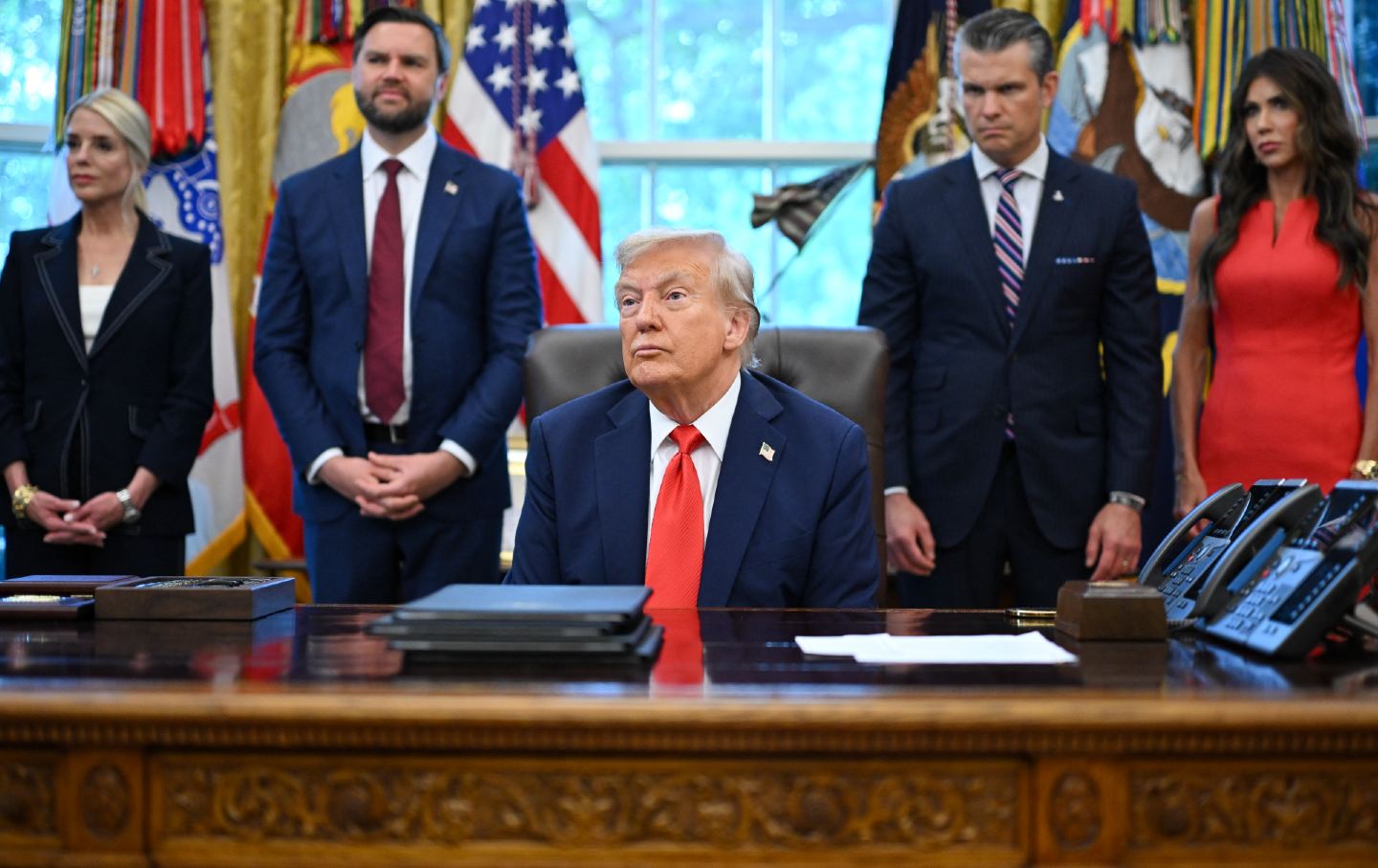
In a chilling escalation of threats to free expression, the Trump administration is intensifying its campaign against dissent, throwing the rights of activists, journalists, and ordinary citizens into jeopardy. This unprecedented assault on civil liberties follows the tragic murder of right-wing activist Charlie Kirk, and it is emblematic of a broader ideological war being waged by the administration and its supporters.
FCC Chair Brendan Carr’s recent comments towards ABC—echoing the filmic tropes of coercion—serve as a stark reminder of how far the administration is willing to go to suppress dissenting voices. “We can do this the easy way,” Carr warned, or “the hard way.” His remarks came after the network’s late-night show, *Jimmy Kimmel Live!*, faced backlash from conservatives for Kimmel’s comments on Kirk’s death. Under immense pressure, ABC opted for the “easy way” and suspended Kimmel’s show indefinitely. This move, however, was not just a business decision; it was a capitulation to political intimidation.
The repercussions of Kirk’s death have reverberated throughout the nation. Since the incident, workers across various sectors—journalists, airline employees, and even students—have faced severe consequences for expressing their views. Reports indicate that numerous employees have been fired, and students expelled for seemingly trivial infractions linked to Kirk’s tragic passing. Meanwhile, a group of 33 House Republicans has called for a select committee to investigate what they term the “radical left’s assault on America.” Such actions underscore a climate of fear and repression that is becoming all too familiar.
The Trump administration’s tactics are reminiscent of a darker chapter in American history. Following Kirk’s murder, Attorney General Pam Bondi hinted at the possibility of prosecuting hate speech, a move that many constitutional experts deemed unconstitutional. The newly rebranded Department of War has enforced strict guidelines on journalists, compelling them to serve as little more than mouthpieces for the Pentagon, lest they risk losing their press credentials. This chilling environment has prompted Vice President JD Vance to personally attack independent journalism, specifically targeting *The Nation* and spreading misinformation regarding its funding.
In a memorial service for Kirk, Trump dismissed concerns about his administration’s tactics as mere “screaming fascism” over a canceled television show. Yet, the reality is that his administration has engendered a culture of governmental suppression unseen in decades, designed to stifle activism and dissent at every turn.
The White House has systematically attacked the media, blocking the Associated Press from its presidential press pool over the agency’s refusal to adopt the president’s preferred terminology, “Gulf of America.” This is but one instance in a series of media suppression efforts, including the seizure of control over press pool assignments, which have seen traditional outlets like *HuffPost* and Reuters sidelined in favor of more compliant partners like Newsmax and *The Blaze*.
The administration’s war on media has not only been limited to strategic silencing but has also manifested in legal threats. Trump has pursued defamation lawsuits against major publications like *The New York Times*, even as courts have dismissed these cases as lacking merit. Nonetheless, major media corporations like CBS and ABC have settled with Trump, paying millions to avoid further conflict, thereby reinforcing a climate of fear and compliance.
Institutions beyond media are also feeling the strain of this oppressive regime. The Smithsonian’s exhibits are under scrutiny for alleged “woke” themes, while federal funding for universities is being held hostage to compel adherence to conservative ideologies. Reports indicate that numerous individuals, including well-known faculty members like Judith Butler, have been targeted, with their names submitted to the administration over vague allegations of antisemitism. In a particularly alarming case, Palestinian activist Mahmoud Khalil was ordered deported despite being a green-card holder and a father to U.S. citizens.
Moreover, legislative attempts to curtail civil liberties have emerged in Congress. A proposed bill by Florida Representative Brian Mast sought to grant the Secretary of State the power to revoke the passports of American citizens accused of supporting terrorism. While this provision was amended due to public outcry, it highlights the precarious state of political speech in America today.
The echoes of past witch hunts loom large in the current political landscape. The Red Scare of the 1940s and ’50s saw thousands of individuals lose their jobs and livelihoods due to unfounded accusations. Today, we are witnessing a similar trajectory, where dissenters face repercussions for their beliefs and expressions.
Yet, amidst this landscape of repression, hope remains. Dissent is still possible. In response to the current climate, congressional Democrats have pledged to introduce a bill aimed at strengthening protections for individuals persecuted for their political beliefs. While largely symbolic given the party’s current minority status, this initiative signifies a refusal to succumb to fear. Progressive organizations are mobilizing to stand against these encroachments on civil liberties by challenging the administration’s policies through legal avenues and public advocacy.
Historically, it has been those brave enough to oppose tyranny that have prevailed. Edward R. Murrow’s courageous reporting against McCarthyism and the collective efforts of everyday Americans to fight censorship during the Red Scare serve as powerful reminders of the impact of dissent. As the nation grapples with its current struggles, it is imperative that we continue to speak out against injustice and defend our rights to free expression.
Dissent is not just possible; it is essential. The fight for civil liberties is far from over, and as history has shown, those who stand firm in the face of repression can indeed change the course of history. As the Trump administration continues its assault on democracy, it is vital that we remain vigilant, organized, and ready to defend the rights that are the cornerstone of our society.


